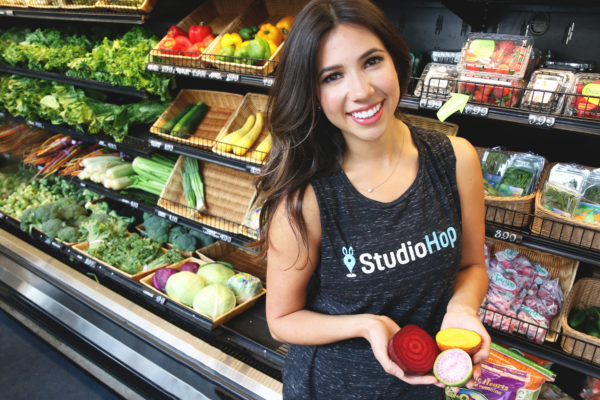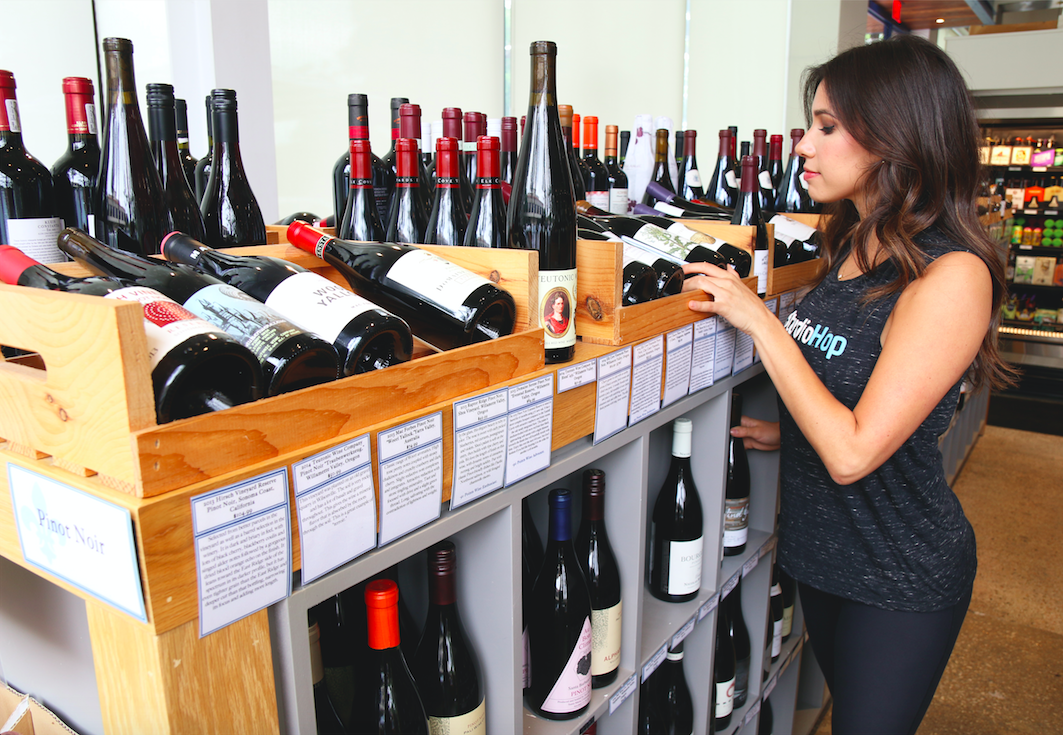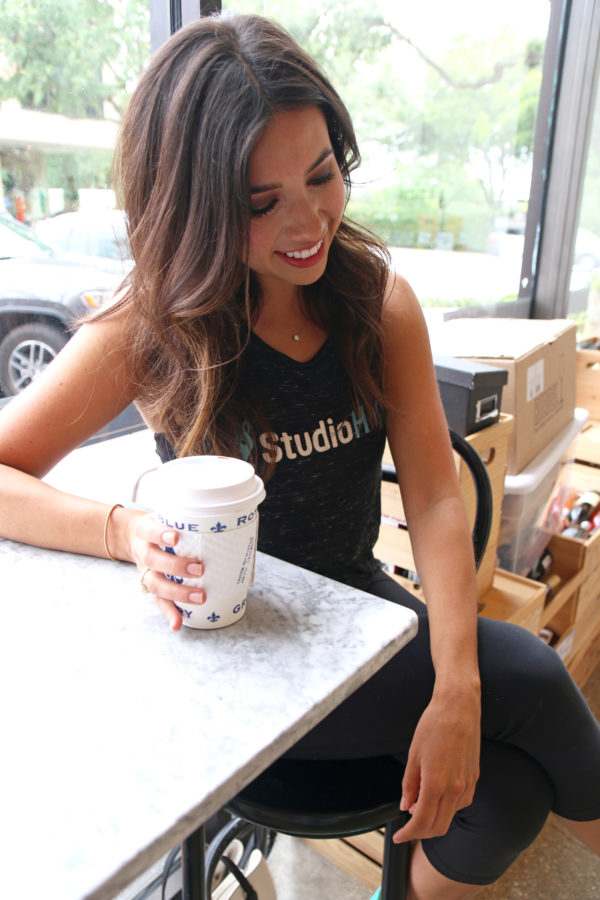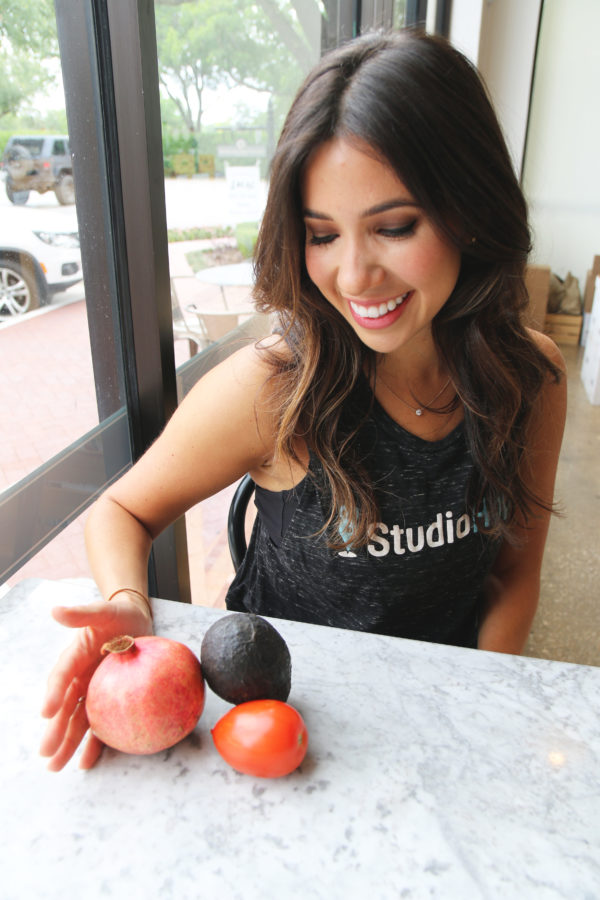
Name:
Rachel Kolm, MCN, RDN, LD
Alma Mater & Degree:
Undergraduate: Texas A&M University – Kinesiology/Basic Exercise Physiology
Master’s Degree: University of Texas Southwestern Medical Center – Clinical Nutrition
Current Place of Employment:
Registered Dietitian Nutritionist (RDN) at Southern Methodist University
1. What made you want to become a Registered Dietitian:
It was definitely a journey to get to where I am, but my passion for nutrition started when I was young. Growing up, I struggled with several food intolerances and a weak immune system – not to mention I was pretty chubby. After one too many doctor’s visits, my mom decided it was time to learn nutrition and switch up our diet. In the span of 6 months, our diets took a 180 degree turn. Instead of fast food and sodas, we started eating vegetables, fruit, lean meats and whole grains. My extra weight fell off, my food intolerances disappeared, and I would go years without seeing the inside of a doctor’s office. I went on to pursue pre-med in college, but after learning more and more about how perfectly our bodies were created, I was convinced that given the right tools (foods), our bodies could heal themselves. So instead of medical school, I decided to pursue my passion in nutrition in order to help others live out their fullest and healthiest life possible.
2. What’s currently in your fridge (name at least 5-10 items):
Spinach, berries, local eggs, kimchi, salsa, chicken, feta cheese, almond butter, hummus, baby carrots, meal-prepped quinoa, and lots of colorful veggies!
3. If you could tell your clients one thing, what’s the most important piece of nutrition knowledge to know?
Being healthy isn’t about being perfect. I live by an 80/20 mentality: 80% of the time I’m fueling myself with the “healthy” stuff, and I give myself grace for the other 20% of the time when I don’t eat perfectly… or if I decide I want pizza and wine for dinner on a Friday night (which happens often).
4. What’s up with carbs? They get a bad rap, but aren’t some of them good for you?
When I counsel individuals, I never tell them there is a “bad” food or food group, but rather unhealthy portions. Carbs are to our body as gasoline is to a car. It’s fuel and without it, we can’t function optimally. So the goal is to choose the RIGHT carbs most of the time (see 80/20 rule). When we think of carbs, we tend to think bread and pasta, but that’s not the extent of it. Whole grains (brown rice, oats, quinoa, etc.), vegetables, dairy foods, fruit and beans are all considered carbs as well. These are the healthy choices because in addition to energy from carbohydrates, these foods also provide fiber, protein, vitamins and minerals that the body needs. Then there are “simple” carbs, and this camp is made up of things like soda, cakes, cookies, sugar (all kinds), and processed or refined grains. These carbs lack fiber, vitamins and minerals, so for this reason they’re empty calories and it’s better to choose these less often or make them smaller portions.
5. What’s your go-to healthy snack?
Mixed nuts, fruit, hummus & carrots, or an avocado taco (what can I say – I love avocado and I love tacos).
6. What’s your go-to beverage in the morning?
Coffee with a splash of soy milk. People that can function without coffee are superheroes.

7. What’s your favorite way to unwind after work/ on the weekends?
It sounds cliché, but any kind of physical activity. I love giving my brain a break and breaking a sweat. I get bored of doing the same thing over and over again, which is why I love StudioHop; it offers the variety I crave, and I’m constantly challenged.
9. Is there such a thing as a ‘bad apple’ in the fruit world? (i.e. are there certain fruits to avoid)
All fruit is beneficial. I always say “eat the rainbow”, not to be cheesy, but because every color is actually associated with different phytochemicals. These phytochemicals can act as antioxidants that fight disease. Color, such as what makes a blueberry blue, can indicate the presence of phytonutrients that work together with vitamins, minerals and fiber (all present in fruits and vegetables) in whole foods to promote good health and lower disease risk. Fun fact: the deeper the color, the higher the phytonutrient concentration.

10. What’s your favorite type of workout?
Kickboxing, because it makes me feel like a bada*s.
11. Is weight just a number on a scale?
Yes and no. Our society glorifies skinny teas, juice cleanses, and dieting all to get a small number on the scale. It’s too easy to get sucked into the lie that the number on the scale defines us. I believe we’ve all been fearfully and wonderfully made, but focusing on weight causes us to forget that. I never weigh myself. Instead, I focus on taking care of my body with nourishing foods, physical activity, and rest. However, as a clinical dietitian, weight can be used as an indicator of health-risk. Weight that is too high or too low (leave this up to a health care professional to determine) can put detrimental stress on the body.
12. What are your go-to resources for information regarding health? (i.e. blogs, books, magazines)
I’m a nerd and I like science-y things, so I tend to read research articles and science journals… but I also google a lot. There’s a lot of good information out there, but it can be tricky to sort between the good and bad. That being said, it is SO important to check the credentials of the author. Registered Dietitians are experts in the field of food and nutrition and must pass a national exam to be accredited by the Academy of Nutrition and Dietetics. Individuals who market themselves as “nutritionists” may have very little or no training in nutrition, so keep this in mind when vetting the information
13. If you could do away with one fad diet and make sure nobody ever tried it again, which one would it be?
All fad diets. Dieting is so harmful for our body, and it ruins our metabolism in the long-run. Find something that works for you that you can maintain long term. Small healthy changes over time are more sustainable and more effective than quick-fix fad diets. I also wouldn’t recommend any diet that cuts out whole food groups without first consulting a dietitian. Each food group contains important nutrients, so when we cut them out completely, we can be prone to deficiencies if we’re not careful.
14. What’s your favorite part about being a Registered Dietitian?
I absolutely love seeing the “aha moments” when that light bulb go off for a client as they realize that being healthy isn’t impossible, boring or about perfection. Watching people succeed, debunking myths, and helping people develop a healthy relationship with food are a few of my favorite things.
15. What is the number one cause for people’s poor eating habits?
There is definitely no single answer to this. I spend a lot of time in South Dallas, which is considered a food desert – meaning that there is low access to affordable or good-quality fresh food. So for kids that grow up in this area, they are almost forced into poor eating habits by their environment. For others its lack of nutrition education, lack of time and need for convenience, dieting mentality, food preferences etc. Whatever it is, it is never too late to make small, feasible changes.
16. When working out, how do you like to refuel?
Most of my workouts are a mix of high intensity interval training and resistance training, so it’s important to restore fluid, replace muscle fuel (carbohydrates) and provide protein to aid in repair of damaged muscle tissue. When I’m not making a meal right after my workout, I usually make a protein shake using 100% grass-fed whey protein isolate and almond milk. Most people actually don’t know that chocolate milk is the gold standard recovery drink for athletes – it hydrates and replenishes with the perfect amount of protein and carbohydrates. So if spending the extra money on powders and specialty recovery drinks doesn’t sound like your jam, rest assured that chocolate milk gives you the same benefits for a fraction of the price.
17. Do you have a go-to juice or smoothie place you love & why?
When I’m feeling fancy, I really like almost anything at Brewed + Pressed. But most of the time I make my own smoothies. Typically I’ll mix spinach, any berries I have, almond butter, chia seeds, protein powder, collagen powder, and almond milk. I’m also a big kombucha fan, but I’m not brave enough to make it myself. So I tend to buy these instead of juices and opt to get my fruits and vegetables through meals and snacks.
18. Do you believe in supplements? If yes, which ones? If no, why not?
There are circumstances where supplements can be helpful such as for individuals following a vegan or vegetarian diet, have limited food choices due to allergies or a medical condition, or during pregnancy. However, the best way to stay healthy and get adequate vitamins and minerals is by choosing a wide variety of nutritious foods. Real food contains healthy things a pill can’t give us. When we take a nutrient out of a food and concentrate it in a pill, it’s not quite the same thing. But if I was to choose two supplements to take, it would be omega-3 fatty acids (fish oil) and probiotics. Research is pretty clear that both of these play a big role in our health, and most of us aren’t eating salmon and kimchi on a daily basis.
19. What’s the real key to changing your eating habits?
Incremental success leads to real change. To make lasting change on eating habits, you have to change what you want and this happens gradually. Make small, realistic goals for yourself and once you’ve mastered one change, add another while keeping the new habit in place. By 6 to 12 months, you’re choosing healthier foods because you’re already in the habit of it. Also, our taste buds adapt to what we consistently feed it. So the good news is that you’ll actually start to enjoy that kale salad… crazy right?!
20. What’s the most rewarding memory from your job so far?
Wow this is hard because there’s so many things. I would say that watching the years of self-doubt, guilt and shame melt away from client’s faces is the most rewarding thing. I love being their cheerleader as they gain self-confidence to overcome challenges, but also give themselves permission to not be perfect.
21. Alcohol- Give us one good fact, one bad fact and one ugly fact about it.
The good is that red wine has significant health benefits! Red wine contains an antioxidant called resveratrol, which plays a role in heart health. The Mediterranean diet actually recommends a glass of red wine per day – coincidence that this is my favorite dietary lifestyle? I think not. The bad is that alcohol contains a lot of calories and most mixed drinks contain a boatload of sugar, so maybe not so great for the waistline. The ugly is when alcohol is abused. Binge drinking and alcoholism wreak havoc on the body. Abusing alcohol can lead to nutrient deficiencies, liver disease, cancer, death etc… sorry to be a buzz kill (pun intended).